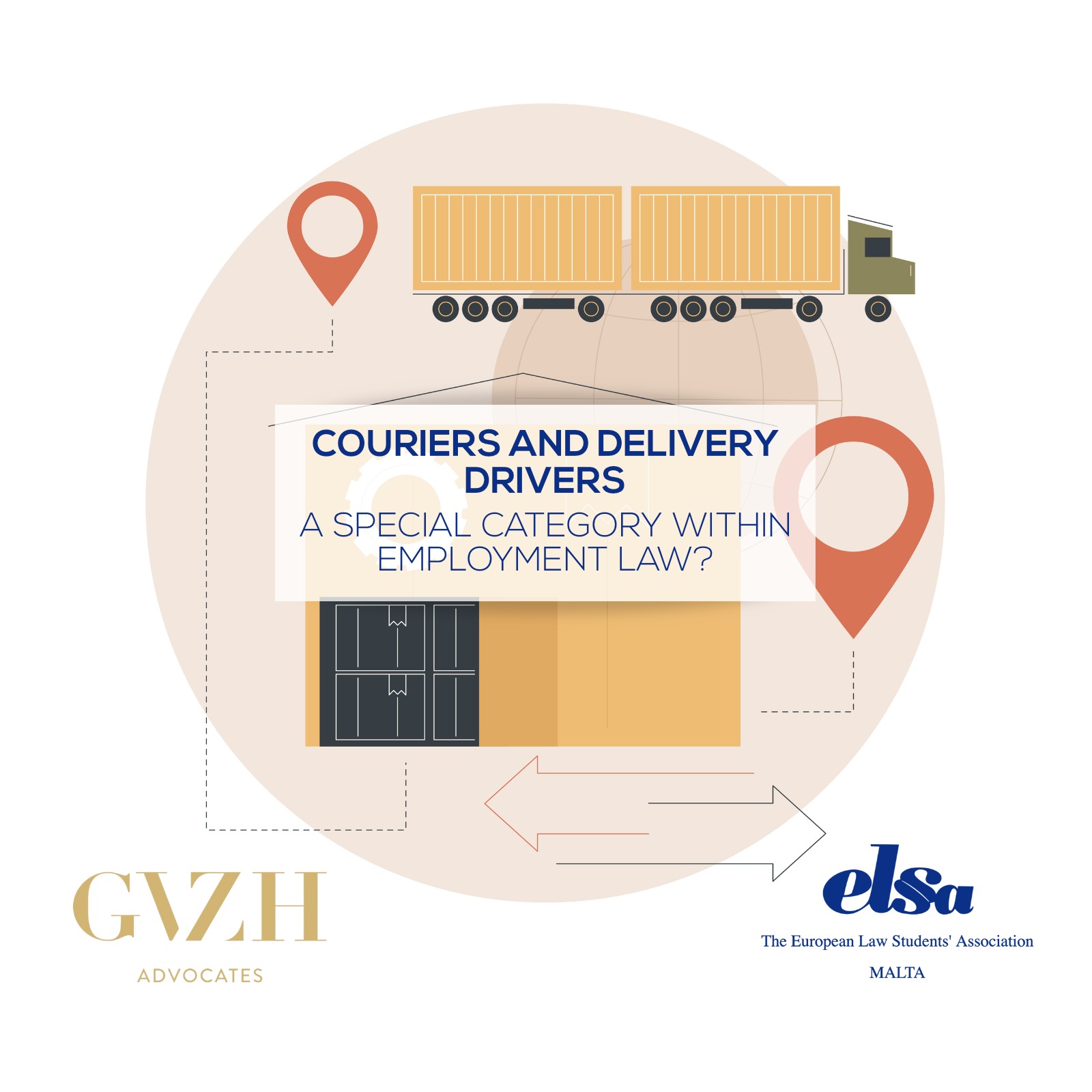Couriers and Delivery Drivers – A special Category within Employment Law?
Since the start of the Covid-19, many industries have had to be reshaped. Curfews, restrictions and temporary closures applicable to restaurants, bars and even retail outlets have promoted a trend towards takeaway and delivery services as opposed to dining in and in-store shopping. As a result, the past few years have seen a boom in the courier and delivery service industry, with it establishing its position as a major employment hub for third-country nationals working in Malta. Along with the expansion of this industry, many have observed an increased level of scrutiny in respect of the substandard working conditions experienced by courier and delivery drivers, who are often engaged on a self-employed or part-time basis despite their working patterns indicating otherwise.
Substantial development was the recently reported newly issued guidelines, which have been described to quantify 2.2 completed deliveries as the equivalent to an hour of work. This has paved the way for a conversion system whereby courier and delivery drivers’ working conditions could be regularised in terms of deliveries completed. Through this calculation, working hours and overtime conditions could be rendered easily identifiable.
However, despite such reporting, no authoritative legal instrument has been published. In fact, to date courier and delivery drivers cannot be categorised as employees to whom specialised employment conditions would be applicable (Wage Regulation Order). Nonetheless, as the momentum on the working conditions experienced by such courier and delivery drivers continues to build, industry stakeholders should be on the lookout for any developments on conclusive regulation of such types of employment.







